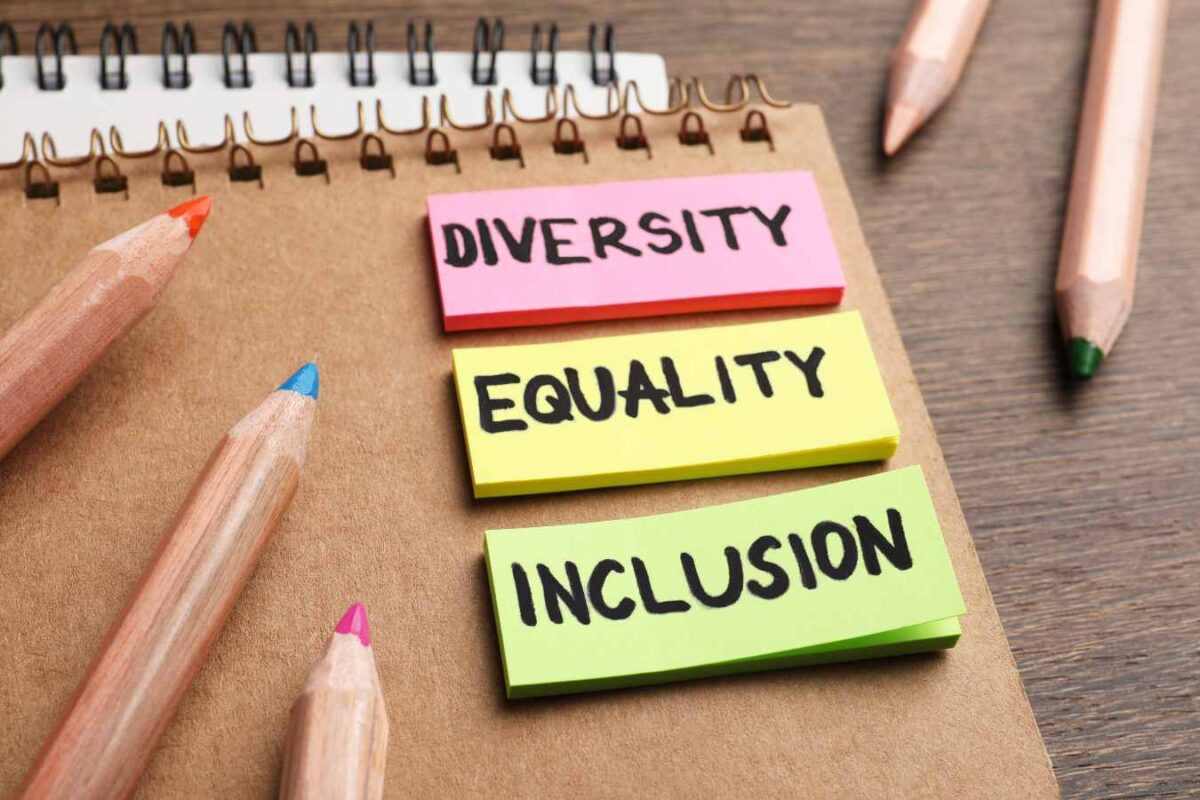The importance of inclusivity in addiction recovery cannot be overstated. People who face addiction come from every ethnic, socioeconomic, and gender background. Still, sometimes, addiction treatment programs don’t account for these differences, leading to approaches that don’t match the needs of the patients.
By fostering inclusivity, recovery programs can improve treatment retention and outcomes, provide more culturally empathetic care, and reduce the risk of relapse, creating a more effective and compassionate recovery journey.
What is Inclusivity in Addiction Recovery?
The definition of “inclusivity” is very important. We use it often, but in this case, we refer to “inclusivity” as an approach to creating programs where individuals of all cultural backgrounds, identities, and life experiences feel accepted and supported.
This is especially important considering that the U.S. and the world are going through a crisis in opioid use that affects Black, Indigenous and People of Color (BIPOC) more than it does other people.
For example, research shows that Hispanic American Indian and Alaska Native men have the highest overall rates of overdose deaths. They also had the highest rates involving fentanyl and methamphetamine without fentanyl.
Despite this, many people of color often face barriers that prevent them from accessing and completing addiction treatment. For example, black, Latino, and Native American people have a higher chance of not completing addiction treatment than white people do.
These realities make it necessary for treatment programs to create plans that ensure that people of all racial, socioeconomic, and gender backgrounds feel heard and understood during treatment.
The Impact of Inclusivity on Recovery Outcomes
Since people with addiction come from all backgrounds, addiction treatment must address the challenges that come with their race, ethnicity, and gender. This leads to the need for “cultural responsiveness” in treatment.
It means awareness of these challenges and creating plans that directly address them. This approach helps people find solutions for their specific needs rather than treating everyone as if they face the same challenges.
For example, men of any background have generally higher overdose rates than women, many people of color have trouble accessing and completing treatment, and certain cultures place great shame on addiction.
Integrating inclusivity into recovery programs helps tackle these challenges and can lead to the following benefits.
Better Retention
When people feel understood and accepted in a recovery program, they are likelier to stay engaged with their treatment. Inclusive addiction recovery programs are designed to respect each person’s identity, helping them feel valued.
For example, in some cultures, there’s a strong belief that mental or physical illness is the result of bad behavior or thoughts. These beliefs may end up blaming individuals for facing addiction, and addiction professionals need to have the tools to help patients navigate complex challenges like these.
Having professionals understand them creates a sense of belonging that can be a powerful motivator for continuing treatment, particularly during challenging recovery phases when individuals might otherwise consider leaving.
Lower Relapse Rates
Inclusivity can positively impact long-term recovery outcomes by lowering relapse rates. In inclusive programs, individuals feel more connected to their treatment groups and are less likely to feel isolated or misunderstood.
When they encounter triggers or stressors, they may be more inclined to reach out to their support network rather than turning back to substance use, helping prevent relapse.
Fostering a Sense of Belonging
Feeling a part of a community that values them for who they are can greatly impact individuals in recovery. This sense of belonging offers stability and emotional support, which are critical for recovery.
Inclusive recovery centers create environments where individuals feel comfortable expressing their authentic selves without fear of judgment, leading to stronger relationships and improved self-esteem.
Better Understanding of the Factors at Play in Addiction
BIPOC people are more likely to face traumatic experiences during childhood, and these traumatic experiences are a risk factor for addiction later in life.
Additionally, biases in legal systems may lead to people of minority races being sent to jail for longer periods for offenses related to drugs. Most jails have no addiction treatment programs, which makes their addictions worse.
Additionally, LGBTQI+ people often face the stress of discrimination, harassment, and trauma, which makes them more likely than heterosexual people to use drugs and develop addiction.
Inclusive addiction treatment programs may help people be aware of these differences in life experiences and establish specific strategies to manage them.
How Recovery Centers Can Foster Inclusivity
Recovery centers can create a more inclusive environment in many ways. These are some of the most common and effective ways.
- Train Staff to Accept Racial, Gender, and Cultural Diversity: Recovery center staff should be trained in cultural competency, which includes understanding diverse cultural practices, respecting individual values, and recognizing biases they may have without noticing.
- Hire Diverse Staff Members: When clients see people who share their backgrounds or experiences, they may feel more understood and comfortable. This feeling of being understood goes a long way in laying the foundation for recovery, especially in minority communities that have historically lacked access to evidence-based treatment.
- Adapt Treatment Plans Based on the Patient’s Specific Needs: Recovery programs must adapt treatment plans to suit individual needs. For example, some clients may benefit from culturally relevant therapy or spiritual counseling, while LGBTQ+ clients may require specific support addressing identity-based trauma or stigma.
Embrace Inclusivity for a Healthier Recovery Community
Inclusivity strengthens the entire recovery community because when individuals feel understood and accepted, they are more likely to engage meaningfully with their treatment, care providers, and the people in their community.
Inclusive recovery programs create spaces where everyone can share experiences, foster mutual understanding, and encourage one another.
Whether you’re seeking support or are a provider in the recovery community, embracing inclusivity can help create a healthier, more supportive environment for everyone involved.
